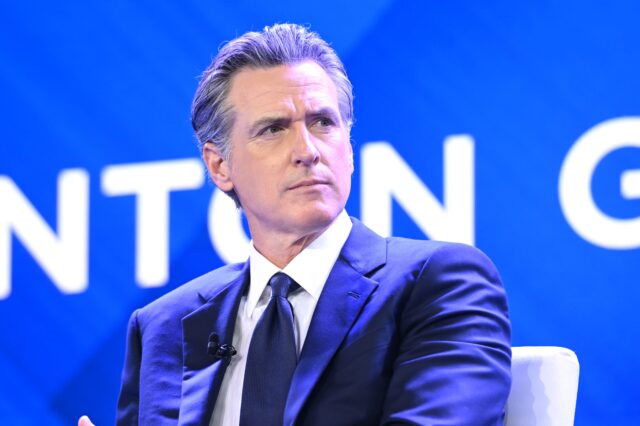
- Tesla’s new car registrations in California dropped 24% in the second quarter.
- Governor Gavin Newsom said Tesla is finally starting to see competition from other companies in California.
- Tesla’s troubles in California could be a symptom of a larger issue, experts say.
Tesla has a California problem — its residents aren’t buying as many of Elon Musk’s electric cars as they used to.
Tesla’s new car registrations in the Golden State dropped for the third straight quarter, with a 24% fall between April and June, according to the California New Car Dealers Association.
And California isn’t the only place where Tesla’s chokehold on the EV market is beginning to slip. The carmaker’s delivery numbers slumped for the second straight quarter in July and Tesla’s slice of the US EV market fell below 50% for the first time.
Tesla CEO Elon Musk has attributed lackluster sales to high interest rates and economic uncertainty in the US. But, while Tesla’s sales are dropping, the EV market as a whole is expanding, including in California.
Data from Cox Automotive shows that total EV sales climbed 23% from the previous quarter and more than 11% compared with the previous year. Similarly, data from CNCDA shows that EV sales in California hit their second-highest quarter on record in July.
‘Dramatic shift’
California Gov. Gavin Newsom made light of Tesla’s declining popularity and hyped up Rivian and Ford’s progress in the state this week.
“Tesla is not the exclusive manufacturer any longer in this space,” Newsom said in comments reported by Forbes. “You’re seeing a dramatic shift in competition across the sector. This is exactly what was predicted. This is exactly what we have been promoting: competition in the space.”
Tesla did not respond to a request for comment from Business Insider.
California is the largest EV market in the US and accounts for nearly a third of electric car sales, according to data from Experian Automotive.
Meanwhile, Musk has attempted to distance himself from the state. In July, Musk said on X that he planned to move SpaceX and X’s headquarters out of California. The billionaire has been critical of Newsom and cited a bill that was signed by the governor in July that prohibits “forced disclosure” rules in public K-12 schools as his reasoning for leaving the state.
Musk has become increasingly vocal about politics in recent years and it’s unclear whether that may have had some sway on sales in California — a Democratic Party stronghold.
On Tuesday, European drugstore chain Rossman announced plans to stop buying Teslas due to Musk’s support for former president Donald Trump.
Earlier this year, some Tesla owners even said they were considering ditching the brand after Musk made a problematic post on social media and some have taken to putting “I bought this before we knew Elon was crazy” bumper stickers on their Teslas.
“For most people, Elon’s politics wouldn’t be an issue, but when people who have purchased are trying to disassociate that says something. Would that person really want to buy another one?” said Ivan Drury, an automotive analyst for Edmunds.
“It could be the thing that pushes someone over the edge who’s a little on the fence,” he added. “Do they really want to get wrapped up in that when there’s competent competition?”
And Tesla might not be keeping up with the competition.
Lack of updates
“In California there’s always the question of ‘is this cool? is this the newest thing?’ And Tesla really hasn’t done much to keep up with that,” Auto Trader editor Brian Moody told Business Insider.
The carmaker hasn’t updated many of its vehicles in years and its Cybertruck isn’t exactly geared toward the average consumer.
What’s more, California registration numbers are just another sign that traditional automakers are on Tesla’s heels, Moody said. “The companies that have had a century of experience manufacturing things in the real world, engineering things in the real world, marketing and distributing those things in real time, now they’re catching on.”
Do you work for Tesla or have a tip? Reach out to the reporter via a non-work email and device at [email protected] or 248-894-6012.





































